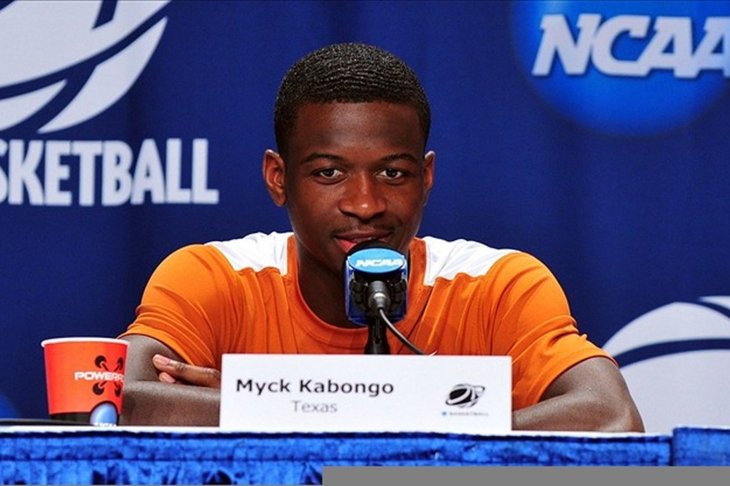After withdrawing from the 2012 NBA Draft to return for his sophomore season, Texas point guard and Preseason All-Big 12 First-Teamer Myck Kabonga anticipated leading the Longhorns on a deep NCAA tournament run while improving his 2013 draft stock.
However, on the eve of Midnight Madness, Yahoo! Sports released a report outlining the NCAA?s probe into Kobonga regarding his relationship with LeBron James? aptly named agent, Rich Paul.
The alleged violation? Following his freshman season at Texas, Kabonoa took advantage of an NCAA bylaw that allows student-athletes to test the draft waters and withdraw their intent with no consequence before midnight on Apr. 11.?Players are permitted to have contact with agents like Paul ? who represents?Kabongo?s teammate at St. Benedict’s Prep and fellow Canadian Tristan Thompson ? as long as no impermissible benefits are exchanged.
Thompson claims to have paid for Kabongo?s New York trip for a workout with pro trainer Jerry Powell but the NCAA is also investigating Kabongo’s connection with Paul and whether Powell committed the egregious act of training Kabongo for free.
?They [NCAA] just want to make sure no outside sources are financing that trip. But no one else did and we have the proof to show them.” Thompson told The Cleveland Plain Dealer.?Thompson also explained that?Kabongo?s brother later reimbursed him.
Unfortunately for Kabongo, innocent until proven guilty isn?t an NCAA tenet.
While the NCAA?s conspiracy theorists rummage through Kabongo?s trash in search of four-figure checks, receipts and Jimmy Hoffa?s remains, this dark cloud will loom over Texas for days, weeks or months.
However, this issue is larger than just one Longhorns point guard.
Kabongo?s eligibility isn?t the most high-profile eligibility case?that the?NCAA has under its microscope. UCLA freshmen Kyle Anderson and Shabazz Muhammad may have to collect dust on the sidelines for a significant part of the Bruins season while the NCAA reviews their eligibility status.
 The NCAA?s relationship with student-athletes is akin to Suge Knight and Vanilla Ice?s business relationship.? In the 90’s, Knight was known for shaking down artists and allegedly he once did the same to Vanilla Ice–over a balcony. Right now, NCAA President Mark Emmert is shaking a bruised Kabongo by his ankles over an Austin-area balcony, emptying out the pocket change he owes their member universities.
The NCAA?s relationship with student-athletes is akin to Suge Knight and Vanilla Ice?s business relationship.? In the 90’s, Knight was known for shaking down artists and allegedly he once did the same to Vanilla Ice–over a balcony. Right now, NCAA President Mark Emmert is shaking a bruised Kabongo by his ankles over an Austin-area balcony, emptying out the pocket change he owes their member universities.
Behind the scenes, benefitting the NCAA?s product is their chief concern as opposed to the welfare of student-athletes.
Until 2009, student-athletes were allowed to continue working out for NBA teams until 10 days before the Draft took place in late June. Since then, the NCAA has continually pushed the aforementioned deadline until April 10, barely more than a week after the national championship game, in order for coaches to get a better idea of their roster needs on the recruiting trail.
At the root of the student-athlete dilemma is their lack of a representative union. While the NCAA holds the eligibility of Kabongo, Anderson and Muhammad hostage, their dogmatic authority goes unchecked. Like Suge in the ?90?s, the NCAA rules by fear. But, after the fall of Death Row Records, Knight’s reputation has taken some major hits.
Until the NCAA’s athletes take a stand, put their dukes up and defend themselves, they’ll always be victims of highway robbery.



